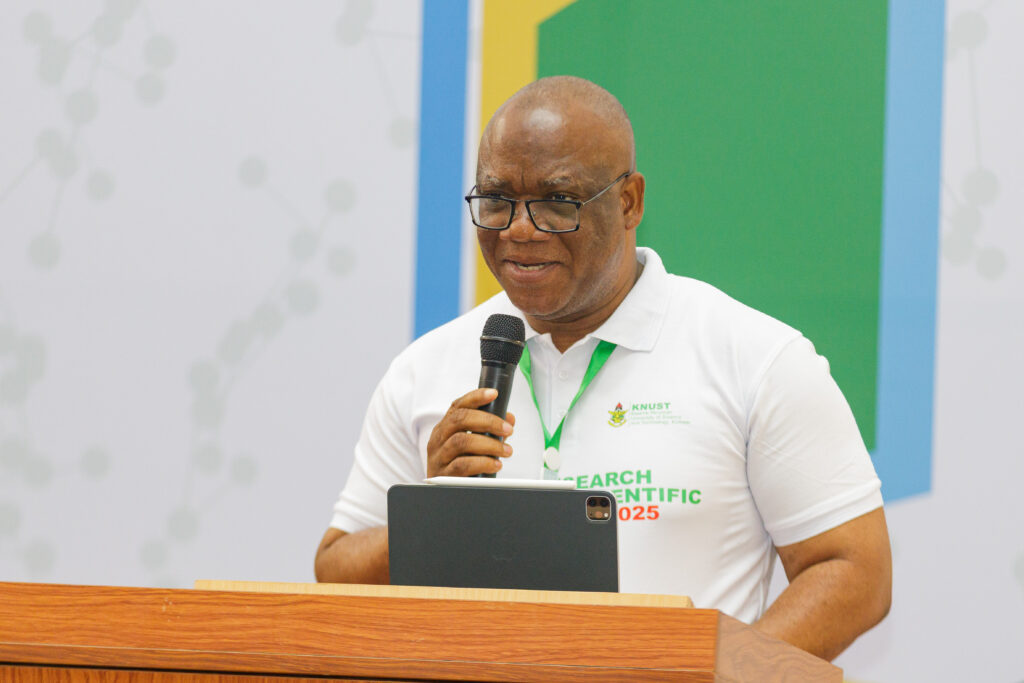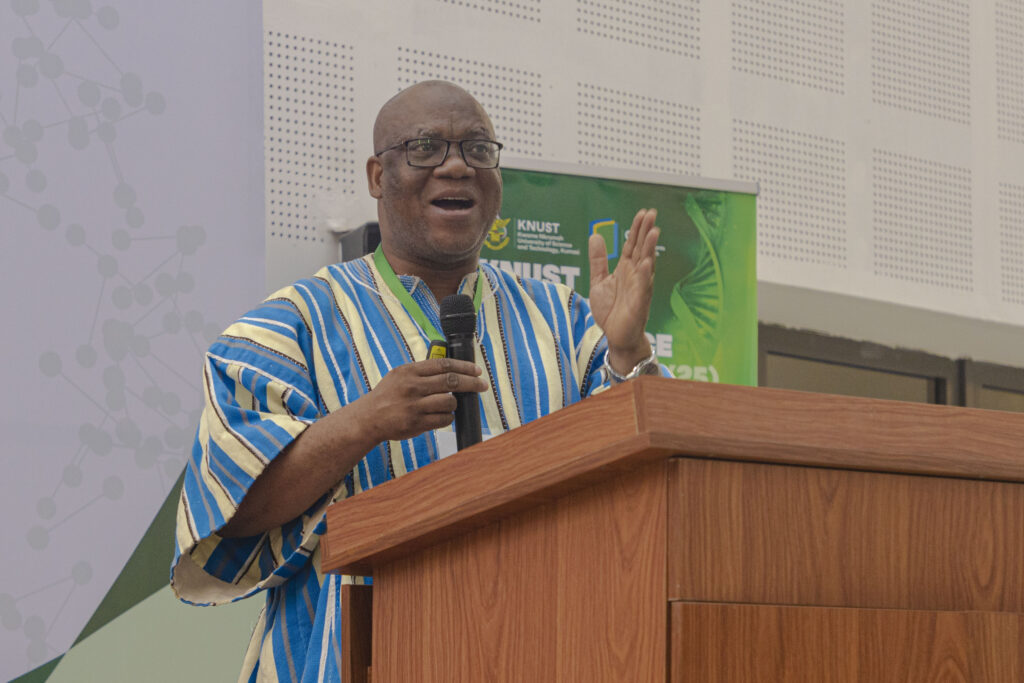The KNUST Research Week and Scientific Conference 2025 reaffirmed the university’s core identity, where “research remains the heartbeat” of its strategic mandate. This year’s theme, “Empowering Researchers to Achieve Impactful Outcomes,” resonates profoundly with the core mission of the Responsible AI Lab (RAIL). The event served as a platform to translate this theme into a decisive call for national development.

Prof. Jerry John Kponyo, RAIL’s Principal Investigator and Scientific Director, and the Director of the Office of Grants and Research, mentioned the University’s unwavering commitment to building a dynamic research ecosystem. He highlighted the event as a platform to “transform potential into progress, knowledge into innovation, and innovation into societal good.”
“The Research Week serves as a powerful call to action, reminding us that the future of sustainable development hinges on our ability to translate knowledge into transformative outcomes,” Prof. Kponyo noted. “At RAIL, we answer this call by ensuring that our advancements in Artificial Intelligence are ethically guided and designed to improve lives and strengthen communities across Ghana and beyond.”

In a lecture titled “Driving Socioeconomic Transformation through Emerging Technologies and Innovation Ecosystems,” Prof. Kponyo presented a compelling blueprint for Ghana’s future. Drawing on case studies from the Asian Tigers, such as Singapore, South Korea, and Malaysia, he argued that Africa can achieve similar growth trajectories if science, technology, and innovation (STI) become the actual engine of national development.
“Everything rises and falls on the engine,” he stated. “For development, that engine is science, technology, and innovation. If we get it wrong, we cannot replicate the progress others have achieved.”
Prof. Kponyo illustrated how deliberate STI investments transformed once-developing economies. For instance, Singapore’s GDP per capita grew 34-fold from 1960 to 2022. “It’s not rocket science. It’s about vision, commitment, and investment. If others can do it, so can we,” he emphasised.
He linked emerging technologies directly to achieving the Sustainable Development Goals (SDGs), showcasing their potential across critical sectors. He stated that by integrating technology into agriculture, we can ensure food security, reduce waste, and generate wealth. He questioned why a fertile nation like Ghana still imports food and provided solutions that include solar-powered modular cold rooms for storage and drone logistics for market access.
Prof. Kponyo concluded with four decisive recommendations to drive this transformation:
- Establish emerging technology labs and centres across universities to foster R&D.
- Promote intentional commercialisation of university research. “If KNUST has 88,000 students, that’s 88,000 innovative ideas,” he said.
- Strengthen industry-academia linkages to scale innovations from the lab to the market.
- Dedicate a portion of the National Research Fund to emerging technologies to ensure sustained financing.
Participants highlighted governance and trust as the non-negotiable foundation for an innovation ecosystem, drawing from the Singaporean model of meritocracy, pragmatism, and honesty.